
https://ebookmass.com/product/the-shakespeare-codex-modernplays-terry-pratchett/
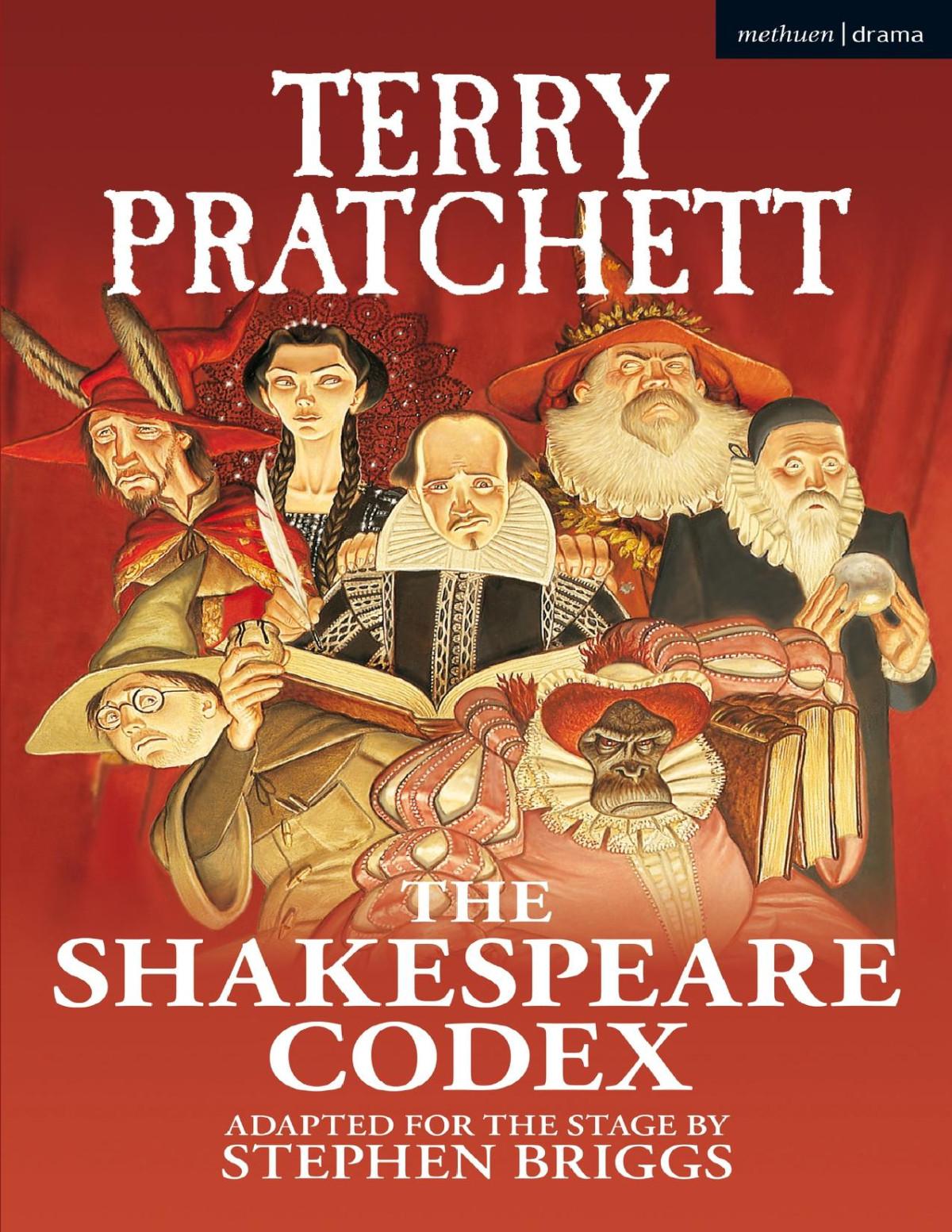
Instant digital products (PDF, ePub, MOBI) ready for you
Download now and discover formats that fit your needs...
The York Corpus Christi Plays Margaret Rogerson
https://ebookmass.com/product/the-york-corpus-christi-plays-margaretrogerson/
ebookmass.com
Trapped: Brides of the Kindred Book 29 Faith Anderson
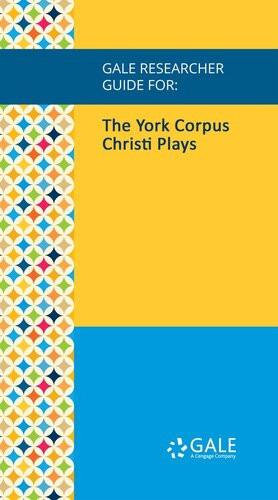
https://ebookmass.com/product/trapped-brides-of-the-kindredbook-29-faith-anderson/
ebookmass.com
King John: Shakespeare: The Critical Tradition Joseph Candido (Editor)
https://ebookmass.com/product/king-john-shakespeare-the-criticaltradition-joseph-candido-editor/
ebookmass.com
Ashes to Glass Carmen Black
https://ebookmass.com/product/ashes-to-glass-carmen-black/
ebookmass.com
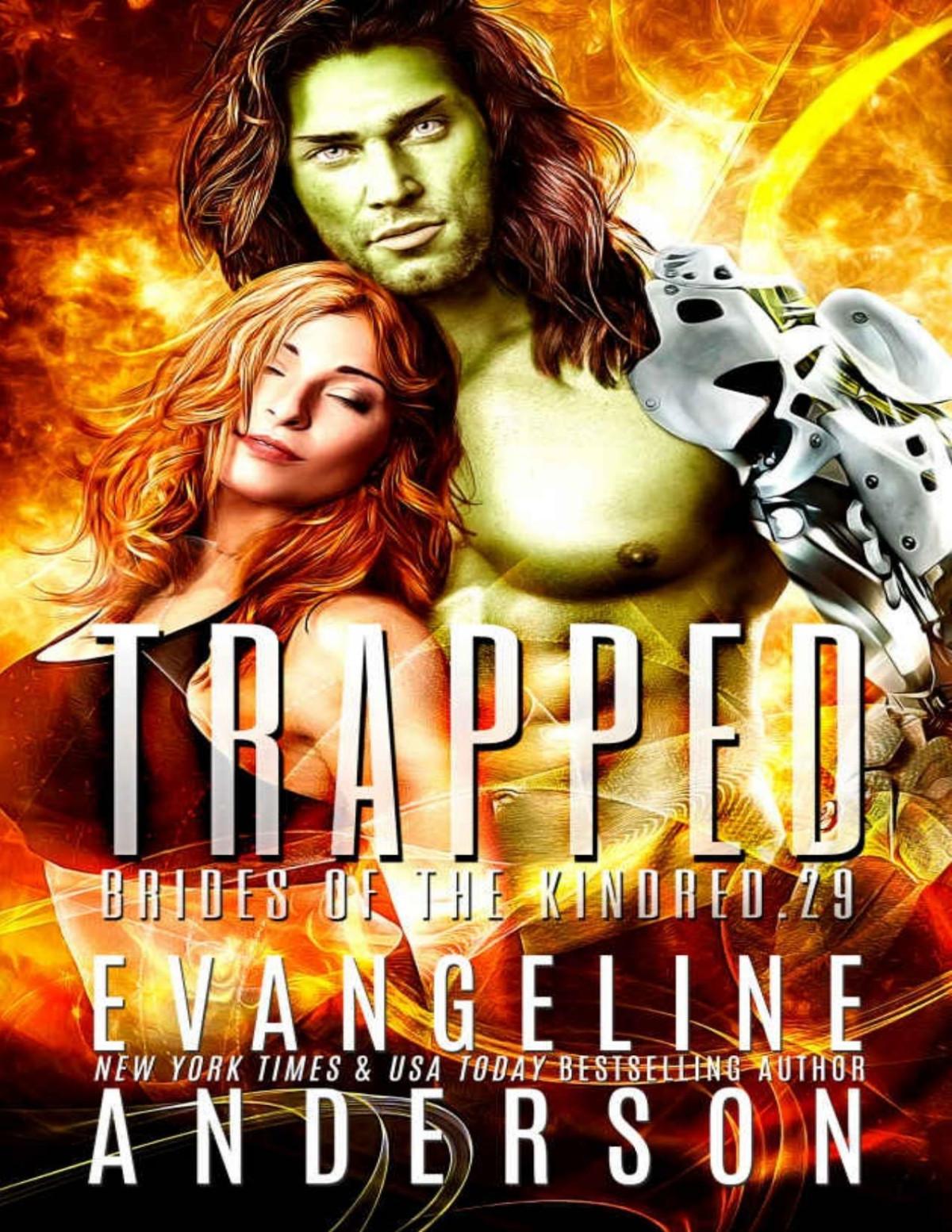
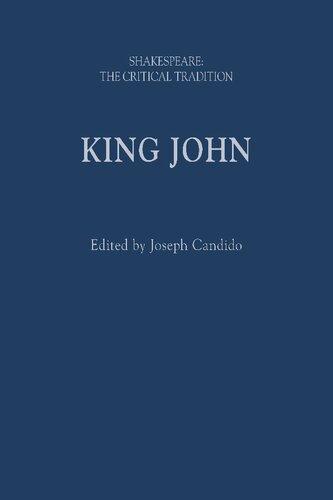

Textbook of Diagnostic Microbiology 6th Edition Connie R. Mahon
https://ebookmass.com/product/textbook-of-diagnostic-microbiology-6thedition-connie-r-mahon/
ebookmass.com
5 Steps to a 5: AP Calculus AB 2022 1st Edition William Ma

https://ebookmass.com/product/5-steps-to-a-5-ap-calculus-ab-2022-1stedition-william-ma/
ebookmass.com
Philo of Alexandria and the construction of Jewishness in early Christian writings First Edition, Impression: 1. Edition Jennifer Otto
https://ebookmass.com/product/philo-of-alexandria-and-theconstruction-of-jewishness-in-early-christian-writings-first-editionimpression-1-edition-jennifer-otto/ ebookmass.com
Conversion to Islam: Competing Themes in Early Islamic Historiography Ayman S. Ibrahim
https://ebookmass.com/product/conversion-to-islam-competing-themes-inearly-islamic-historiography-ayman-s-ibrahim/
ebookmass.com
An
Introduction to Proof
Theory:
Normalization, CutElimination, and Consistency Proofs 1st Edition Paolo Mancosu
https://ebookmass.com/product/an-introduction-to-proof-theorynormalization-cut-elimination-and-consistency-proofs-1st-editionpaolo-mancosu/
ebookmass.com
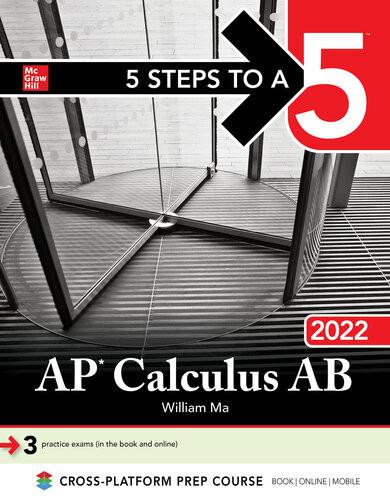
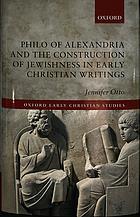

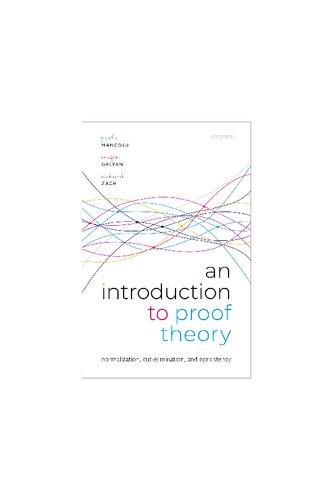
Legitimacy: The State and Beyond Wojciech Sadurski
https://ebookmass.com/product/legitimacy-the-state-and-beyondwojciech-sadurski-editor/
ebookmass.com
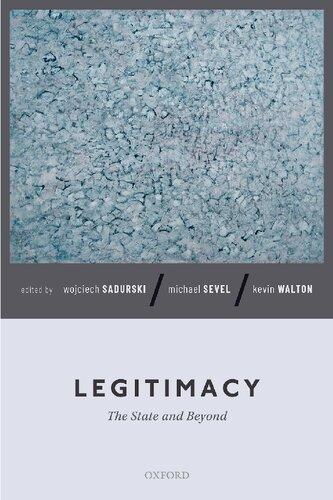
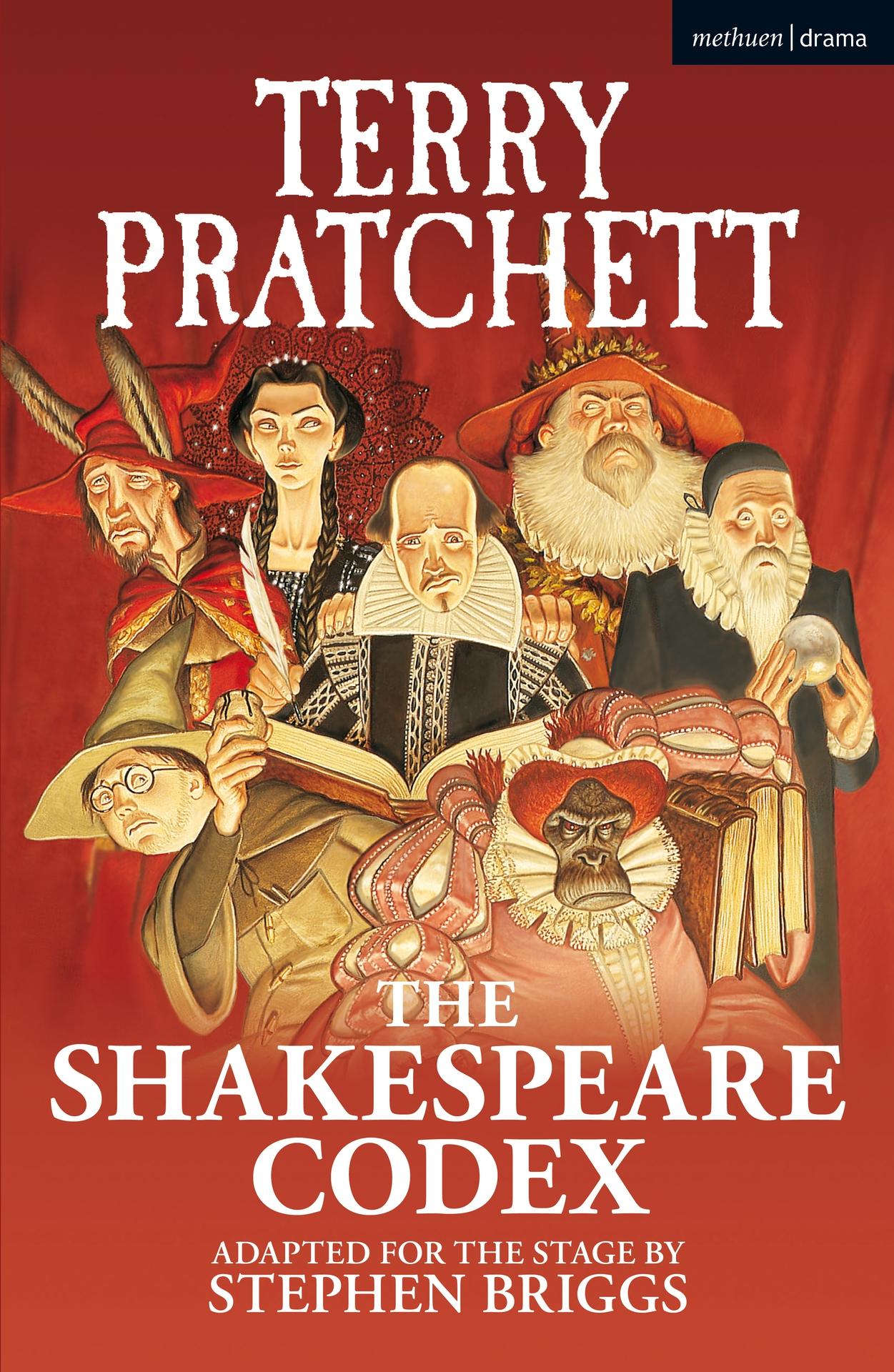

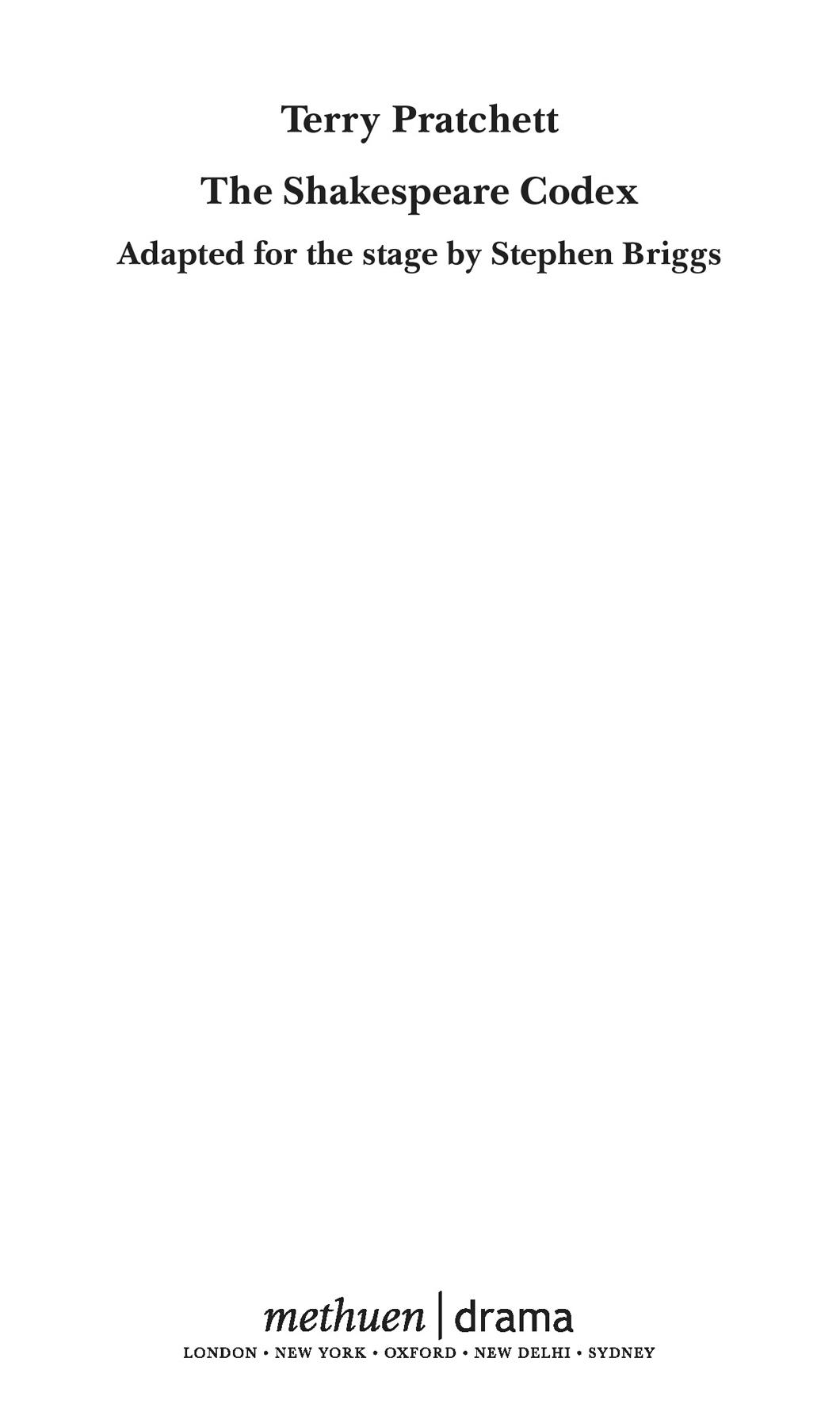

INTRODUCTION
ALL THE DISCWORLD’S A STAGE
The first people ever to dramatise the Discworld, in any form, were the Studio Theatre Club in Abingdon, Oxon. That was in 1991, with Wyrd Sisters.
We had already staged our own adaptations of other works: Monty Python’s Life of Brian and Holy Grail and Tom Sharpe’s Porterhouse Blue and Blott on the Landscape. We were looking for something new when someone said, ‘Try Terry Pratchett – you’ll like him’. So I ventured into the previously uncharted territory of the ‘Fantasy’ section of the local bookstore (‘Here Be Dragons’). I read a Terry Pratchett book; I liked it. I read all of them. I wrote to Terry and asked if we could stage Wyrd Sisters. He said yes. Wyrd Sisters sold out. So did Mort the year after.
So did Guards! Guards!, Men at Arms, Maskerade, Jingo, Carpe Jugulum, The Fifth Elephant, The Truth, Night Watch, Interesting Times, Monstrous Regiment and all the others in the years after that. In fact, ‘sold out’ is too modest a word for some of the earlier ones. ‘Oversold very quickly so that by the time the local newspaper mentioned it was on we’d had to close the booking office’ is nearer the mark.
My casts were all happy enough to read whichever book we were staging, and to read others in the canon, too. For the later books in the series, we were often staging the play within a few weeks of the book’s publication. I was working from early drafts and the cast was able to read the bound proof.
The books stand on their own, but some knowledge of the wider Discworld ethos is essential when adapting the stories, and can also help directors to find out where it’s all coming from, and help the actors with their characterisations.
The Discworld novels have been getting longer, more complex and darker as the years have passed and it is an increasing problem to try to put over the main plot while still meeting the overriding target for amdram – getting into the pub before closing. The important thing is to decide what is the
basic plot: anything which doesn’t contribute to that is liable to be dropped in order to keep the play flowing. Favourite scenes, even favourite characters, have on occasions had to be dumped. These are hard decisions but the book has to work as a play. You can’t get 400 pages of novel into two/two-and-a-half hours on stage without sacrifices. Each play also offers a challenge to Directors in working out who can double for whom in order to stage them with a smaller cast. You’ll see from the cast list which follows this Introduction how we covered all the roles.
Although the majority of our audiences are ‘fans’, I’ve tried to remember when writing the plays that not all the audience will be steeped in Discworld lore. Some of them may just be regular theatre-goers who’d never read a fantasy novel in their whole lives – humorous fantasy may not be everyone’s ‘thing’.
Terry Pratchett: The Shakespeare Codex is based on one of Terry’s less well-known stories – the sub-plot which shares the pages of The Science of Discworld II: the Globe (plus some bits of other books, such as Lords and Ladies). As such, it may be better suited to companies with a core of Discworld regulars in their audiences but, then again, the Shakespearebased plot, and usage of his plots and characters should make it accessible to ‘normal’ theatre-goers. I wouldn’t want ‘newbies’ to feel they were watching something that had been typed on an Enigma machine.
Terry’s books are episodic and have a sort of ‘cinematic’ construction; I have retained this format in The Shakespeare Codex and used different stage areas and levels with brisk lighting changes to keep the action flowing. Set changes slow down the action, even when they’re really slick. A thirty-second blackout between each scene, accompanied by rustling, crashing and muffled swearing from your stage crew, means you’re in danger of losing the audience. Even ten-second changes, if repeated often enough, will lead to loss of interest.
I’ve been to see many productions of the plays and the best have been those that have used bare stages or composite sets – leaving the majority of the ‘scene changing’ to the lighting technician. The golden rule is: if you can do it without scene shifting, do it without scene shifting. It’s a concept that has served radio drama very well (everyone knows that radio has the best scenery). And Shakespeare managed very well without it, too.
The plays do, however, call for some unusual props. Over the years, many of these have been made by my casts and crew: large hourglasses for Death’s house, shadow puppets, archaic rifles, dragon-scorched books. Other, more specialised props were put ‘out to contract’: Death’s sword and scythe, an orang-utan, Detritus’ head and hands, a Death of Rats, a Greebo, Scraps the dog and two swamp dragons (one an elaborate hand puppet and one with a fire-proof compartment in its bottom for a flight scene).
Nowadays, I can’t imagine how I’d cope without eBay.
Since the Studio Theatre Club started the trend in 1991, Terry and I have had many enquiries about staging the books – from as far afield as Finland, Zimbabwe, Indonesia, Australia, Bermuda and the Czech Republic (as well as Sheffield, Aberdeen, Exeter and the Isle of Man). I even licensed a production of Wyrd Sisters in Antarctica! Royalties from the five plays administered by us have raised over £90,000 so far for the Orangutan Foundation.
So how did our productions actually go? We enjoyed them. Our audiences seemed to enjoy them (after all, some of them were prepared, year after year, to travel to Abingdon in Oxfordshire from Germany, the Netherlands, Taunton, Edinburgh and . . . well, Oxford). Terry seemed to have enjoyed them, too. He said that many of our members looked as though they had been recruited straight off the streets of Ankh-Morpork. He said that several of them were born to play the ‘rude mechanicals’ in Vitoller’s troupe in Wyrd Sisters. He once said that, in his mind’s eye, the famous AnkhMorpork City Watch are the players of the Studio Theatre Club.
I’m sure these were meant to be compliments.
THE SHAKESPEARE CODEX
I had wanted to do some sort of adaptation of the Shakespeare plot in The Science of Discworld II for some time, but other Pratchett books kept beating that project to the punch. Terry and I had discussed how such a brief plot could work and then, in 2016, the time was finally right. I’m grateful to Rob Wilkins and Rhianna Pratchett for their green light for this one. We knew from long experience that the Discworld plays were a winner . . . though we’d also learned that the flourishing trade in other groups staging
the plays meant that, although they still play to full houses, we couldn’t afford to take those full houses for granted.
I wanted to ensure that, even though I had been able to add extra female characters into the mix, that as much as possible of the Discworld characters’ dialogue was Terry’s own words. I used snippets from Lords and Ladies, Wyrd Sisters and Maskerade to help to flesh out their scenes. I also liked the artifice of using Shakespeare’s own words for some of the ‘normal’ dialogue, and also ‘hiding’ quotations from his plays in the Discworld scenes.
When I wrote it, I wasn’t sure what I was going to call it – Not the Science of Discworld II, All’s the Disc’s a Globe, The Rude Mechanicals, A Midsummer Dream’s Nightmare. In the end, I decided to gently pay homage to the Doctor Who plot which was very similar to Terry’s – the one where the tenth Doctor has to stop Shakespeare completing Love’s Labour’s Won to stop an evil alien invasion – ‘The Shakespeare Code’.
A bonus for me was that Abingdon’s medieval Unicorn Theatre, with its Globe-esque stage, was a part of the package; it has its shortcomings, but its ambience contributed much to the original success of the shows, and would be a huge bonus in a play set in and around Shakespearean England.
This dramatisation was written with the Unicorn Theatre’s restrictions, and the number of players I expected to have available, in mind. Really complicated scenic effects were virtually impossible. Basically, we had a bare stage with an on-stage balcony at the back of the stage with a small curtained area beneath it. Anyone thinking of staging a Discworld play can be as imaginative as they like – call upon the might of Industrial Light & Magic, if it’s within their budget. But The Shakespeare Codex can be staged with only a relatively modest outlay on special effects. Bigger groups, with teams of experts on hand, can let their imaginations run wild! In short, though, our experience, and that of other groups, is that it pays to work hard on getting the costumes and lighting right, and to keep the scenery to little more than, perhaps, a few changes of level enhanced by lighting effects and carefully chosen background music. There’s room for all sorts of ideas here. The Discworld, as it says in the books, is your mollusc.
Terry Pratchett and me
This was our first Pratchett play since Terry left us, and the first of his shows he wasn’t able to come and see – nor to comment on afterwards in the pub, over a large brandy.
I think he would have approved of this riff on that plot, and the opportunity I’ve taken (with permission from Rob Wilkins and Rhianna Pratchett) to include cameos from a range of Discworld’s ‘stars’ . . . an homage to the character cameos Terry wove into the final Discworld novel, The Shepherd’s Crown. I’ve also (as he did in Dodger) tinkered a little with the historical timeline to suit the action. Oh, and taken a few Treehouse of Horror liberties with some characters’ lifelines!
Terry and I became friends and (as you may know) we worked together on lots of projects. It was awful to learn of his ‘embuggerance’ – posterior cortical atrophy, a form of Alzheimer’s – and to know that it would, inevitably, steal him from us. It was a hammer blow when he died.
But Terry’s books live on. His plots, characters, humanity and humour are there to delight generations to come.
It’s been fun so far, and there are lots of his stories I haven’t tackled yet!
Characterisation
Within the constraints of what is known and vital about each character, there is still room for flexibility of interpretation. With the main roles, though, you have to recognise that your audiences will expect them to look as much like the book descriptions as possible. Most drama clubs don’t have a vast range from which to choose, though, and it’s the acting that’s more important than the look of the player when it comes down to it.
Costumes
The City Watch ‘style’ is English Civil War (though you won’t need that for this play), and Angua tends to look slightly ‘ancient Roman’ with tabbed kilt, etc. Vetinari wears a long, ecclesiastical-looking black robe and a black skull cap. The rest of the city now tends towards Dickensian, with a side order of medieval. The Librarian (for those new to Discworld) is an
orangutan. Luckily, orangutan costumes are now more readily available on the internet. For discretion, he also usually wears a robe – we used a red university doctorate robe.
Scenery
Virtually none. We had a couple of stools, and an old-looking table for the inn and for Dr Dee’s study. Apart from that, a virtually bare stage, so we could keep the action moving.
Semaphore?
Fans of Terry’s books will notice that I’ve referred to Discworld’s ‘clacks’ system as ‘semaphore’ in this play. The clacks system is well set up in the novels by its creation in Going Postal. Here. it’s just a passing reference which would need explaining to audiences unfamiliar with the books. That would just slow down the action and distract from the gags based around the cost of messaging and Granny’s one-word reply. If you feel your audiences would prefer ‘clacks’ to ‘semaphore’, then feel free to swap.
Oh, and a word on pronunciation . . .
Having seen many of the plays staged, pronunciation of the names seems sometimes to be a stumbling block. Here are some pointers:
AnkhMorpork Ankh, as in ‘bank’, Morpork as in ‘more pork’, with the stress in the city’s name on the second syllable – AnkhMorpork.
Vetinari Long ‘a’ and stress the third syllable – Vetinah-ri.
Rincewind The ‘i’s in ‘Rincewind’ are both short, as in ‘dish’.
Angua Hard ‘g’. An-Gwa, or An-Gewah.
Gytha Geetha, with a soft ‘th’.
Esme Ez-mee. Not Ezmay.
Magrat As it looks – Mag.Rat. stress on the first syllable. Not M’grat, not Margret.
Thinking of staging it . . .?
Application for professional performance, etc., should be made before rehearsal to legal@narrativia.com and for amateur performance to Bloomsbury Publishing Plc at 50 Bedford Square, London, WC1B 3DP, UK (contact@bloomsbury.com). No performance may be given unless a licence has been obtained.
Please also note that we have an obligation to ensure that productions remain true to this approved text. This means that we are now very unlikely to agree to text changes unless there are genuinely compelling reasons (such as, for example, toning down language for a junior school production).
Stephen Briggs January 2021 www.stephenbriggs.com Twitter @StephenPBriggs
Terry Pratchett: The Shakespeare Codex, adapted by Stephen Briggs, was first presented by the Studio Theatre Club at the Unicorn Theatre, Abingdon, on Wednesday 6 April 2016, with the following cast and crew:
On Discworld
Mustrum Ridcully
Ponder Stibbons
Rincewind
Librarian
Havelock, Lord Vetinari
Drumknott
Captain Angua
Granny Weatherwax
Nanny Ogg
Magrat Garlick
Shawn Ogg
Young Esme Weatherwax
Elf Queen
Hex
On Roundworld
Elizabeth I, Queen of England
Bess Talbot, Countess of Shrewsbury
Edward de Vere, Earl of Oxford
William Shakespeare
Christopher Marlowe
Richard Burbage
Will Kemp
Matt Kirk
Brian Mackenwells
Dan Booth
Matthew Fifield
Stephen Briggs
Francesca Richards
Anna Griffiths
Val Shelley
Erin Burns
Jessica Maguire
John Kirchhoff
Francesca Richards
Natasha Warner
Suraj Patel
Anna Sturrock
Kat Steiner
Ben Winters
Rory Morrison
Charlie Vicary
Tom Fenton
Mike MacDonald
Thomas Kent Anna Sturrock
Capulet Matt Fifield
Montague
Kalil Copley
Prince Charlie Vicary
Hippolyta
Kalil Copley
Dr Dee John Kirchhoff
Lost Hope
Lankin Jamie Crowther
Greysteel
Simon Wilson
Vinkala Jon Shepherd
Speck (non-speaking) Francesca Richards
On Both Worlds
Narrator
Second Narrator
Mike MacDonald
Jon Shepherd
Traveller (cut from this text) Kalil Copley
Companion (cut from this text) Jessica Maguire
Director Stephen Briggs
Stage Manager
Lighting
Elena Wright
Jon Viner, Nigel Tait
Sound Daniel Booth
